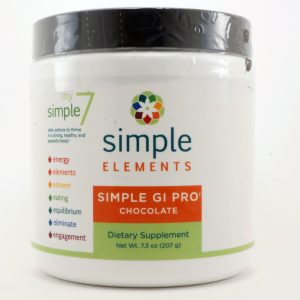Whether you are running the kids to basketball practice or dashing off to meetings for work, it can be challenging to sit down and enjoy nutrient-dense, balanced meals. Sometimes the convenience of fast food means compromising on quality nutrients. A busy lifestyle can make it challenging to acquire your daily recommended value of vitamins and minerals from food.
While perusing social media one evening, you may notice your friends on Facebook are promoting get-fit-quick supplements with superfood powers. Their product descriptions claim “more is better” and their powder and pills will change your life!
Patients often ask us – is it better to acquire vitamins from food or to take dietary supplements?
Let’s start with the basics. Whole foods, like fruits and vegetables, contain carotenoids, flavonoids, minerals, antioxidants, fiber, and other trace elements. Fresh fruits and vegetables can lower your blood pressure, prevent blood sugar, and decrease your risk for certain types of cancer. No single fruit or vegetable is a complete source of vitamins and minerals, so its beneficial to consume a variety of these each day.
What are dietary supplements?
Dietary supplements can be taken in a variety of forms (tablet, capsule, powder, etc.). They may contain vitamins and minerals commonly found in whole, fresh foods. A dietary supplement is meant to compliment a diet and balance deficiencies, rather than replace an entire meal. Also, multivitamins do not contain the combination of vitamins, minerals, and fiber of whole foods, so you won’t feel as satiated as you would from eating fruits and vegetables.
How do you know if you should take a dietary supplement?
There are groups of individuals who can benefit from taking a supplement, such as a multivitamin. If you have difficulty maintaining a balanced diet, and your blood chemistry illustrates that your vitamin levels are below normal range, you may want to consult your doctor about taking a supplement.
If you spend nearly all of your time indoors and lack energy, you may consider checking your vitamin D levels. Although you can acquire vitamin D through the food you eat, it is also available through sun exposure. Thus, a vitamin D supplement can be helpful during the dark winter months when it becomes troublesome to go outside.
Certain diets that eliminate food groups, such as meat or diary, can affect your vitamin and mineral levels. If you are not meeting your daily recommended values, a multivitamin may help. Other groups of individuals who may benefit from supplements are females who are planning to become pregnant and those who are pregnant. For example, taking a folic acid supplement may prevent against neural tube defects in a baby.
The bottom line –Ask your body the questions. Once your body gives you the answers, such as through your blood chemistry, decide with your doctor what supplements, if any, are right for you. Note that supplements can be costly, so make sure you are taking only the ones you actually need. If you choose to take supplements, be sure to use medical grade, high-quality, science-based products. The FDA does not review the safety or effectiveness of dietary supplements before they are sold, and manufacturers may promote unrealistic claims.
The Simple Shop is now open online and features a variety of products we believe in and trust. Dr. Durland can help you find the perfect combination of supplements for your body and goals. If you need help selecting your supplements, we can help.
https://www.ncbi.nlm.nih.gov/pmc/articles/PMC3218540/
https://www.fda.gov/food/buy-store-serve-safe-food/what-you-need-know-about-dietary-supplements
_____
 Dr. Lauren Easton is a Doctor of Philosophy, Health and Psychology of Physical Activity from the University of Kansas. She also holds a Ed.S. in Counseling and a Master’s of Science in Kinesiology- Sport Psychology from Georgia Southern University. Dr. Easton areas of specialty include goal orientations, optimizing experiences with physical activity + nutrition, exercise psychology, goal-setting plans, and strategies for health-related behavior changes. Dr. Easton is a key component to the Simple Weight Loss Program, assisting patients in experiencing growth throughout the weight loss process and maximizing their experience in physical activity, nutrition, and other health-related behaviors. Dr. Easton also leads the Simple Wednesday Walking Group every week starting at 7am in the Simple Wellness parking lot.
Dr. Lauren Easton is a Doctor of Philosophy, Health and Psychology of Physical Activity from the University of Kansas. She also holds a Ed.S. in Counseling and a Master’s of Science in Kinesiology- Sport Psychology from Georgia Southern University. Dr. Easton areas of specialty include goal orientations, optimizing experiences with physical activity + nutrition, exercise psychology, goal-setting plans, and strategies for health-related behavior changes. Dr. Easton is a key component to the Simple Weight Loss Program, assisting patients in experiencing growth throughout the weight loss process and maximizing their experience in physical activity, nutrition, and other health-related behaviors. Dr. Easton also leads the Simple Wednesday Walking Group every week starting at 7am in the Simple Wellness parking lot.




Hello there! This post couldn’t be written any better!
Reading this post reminds me of my old room mate!
He always kept talking about this. I will forward this write-up to him.
Pretty sure he will have a good read. Thank you for sharing!